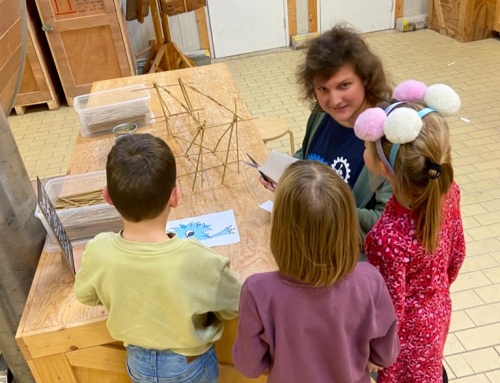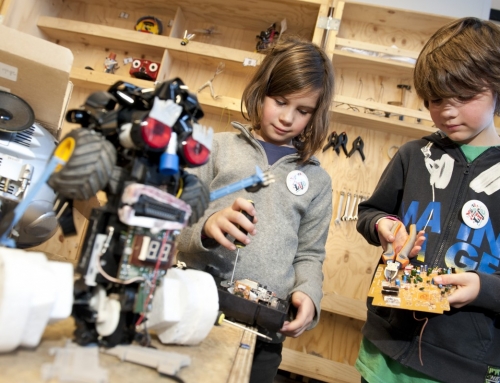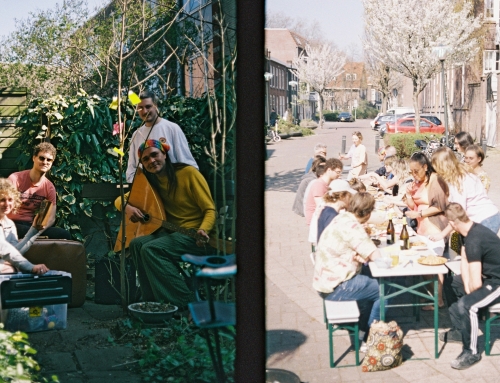Currently, technology is developing at an alarming rate (“International Labour Office”, 2020). Nobody can accurately predict what the future societal landscape will look like. Within my graduation assignment as I explained in the blog De Uitvindfabriek: A Tech-Based Experience Centre, I have mostly focussed on how we can support and educate the children of today for the future of tomorrow due to the rapid changes that are happening in technology. To zoom out a bit and stress why it is important to create a society where people are ready to take on tech-related challenges, I thought it would be interesting to talk about an example about problems that are occurring today that could have been prevented with proper use and knowledge of technology.
The Check-In System Incident
Today, many services are created using new technologies to improve service delivery, outreach, and boost efficiency. In our current working landscape for example, there are a number of innovative evolutions based on new technologies, such as linking databases on jobseekers and registered vacancies. Many of these advancements have the potential to add value to public employment services. Yet, there is also concerns regarding how automated solutions may lead to increased discrimination on the labour market and sectors such as education. An example of this is the manner in which algorithms are constructed to screen candidates (“International Labour Office”, 2020).
Although I have been fortunate to not have been the target of such discrimination myself, I have heard of examples regarding education where this happened during a UX (User Experience) Design conference. During the covid-19 pandemic, semi-automated checking systems were utilized for online exams. Students would turn on their camera, and the program would check if the person in front of the camera was the same person that signed in to prevent cheating. Once the check in was completed, the students could start their exam.
One young woman found that she could not get past the check in phase of the process. The system would not recognize her face and after trying many times, her time frame to start the test passed and as a result she failed. Upon contacting the organisation that created this system, a shocking realisation came to light. The woman was dark-skinned, and the program had only been tested with Caucasians. Although nobody that created the programme acted out of a racist mindset, by neglecting to include a diverse group of people in their testing phase, it resulted in this woman being discriminated against. Because she was black, she was not recognised by the system as a human being.
Act to Prevent, Instead of Fixing what went Wrong
To prevent these kinds of situations in the future, children should be educated properly on the importance of inclusion and co-creation within tech-based initiatives. However, I believe we can do better than sit and wait for the next generation to take over and do it better. What can be we do today that will have a positive impact on the use of technology?
A global research done by the International Labour Office (2020) offers both a top-down and bottom-up solution. A top-down example is that government should enact policies that enforce diversity with interactive tech-based environments to avoid unintended discrimination in automated systems. For a bottom-up solution, they believe it’s essential to including young people of diverse backgrounds in social dialogue related to tech-based policies and innovations. This will address the discrimination within automated programs, and also introduce people to unknown ideas and issues. Young people are early adopters of new technology, and they can offer great insight in the user experience that they have with new technologies that are being introduced.
Looking for Unknown ‘Unknowns’
As a social innovator, I always make sure to create with, and not for people. But situations such as the check-in system incident make me realise the importance of addressing the unknown ‘unknowns’: aspects of influence that nobody is actively aware of. It is better to prepare for a problem beforehand than it is to solve it in the moment. Yet by its very nature, you can never account for all of the unknown ‘unknowns’. By being proactive and including different kinds of people within dialogues, social innovators can identify challenges before they would have affected the outcome of a process, tech-related or otherwise.
Within my graduation project for example, I decided to address the unknown ‘unknowns’ by simply walking around De Uitvindfabriek, the organisation at which I am doing my graduation project. I observed what was happening to see if there were aspects that I was unaware of that could influence my graduation assignment. Moreover, I asked both employees and guests questions such as: ‘What do you think is the biggest challenge that De Uitvindfabriek is facing at this point in time?’ or ‘Is there something that you missed in the experience, or something that you would like to add?’. Because of these interventions, one unknown ‘unknown’ I uncovered for example is that some guests had a different perception of the identity of De Uitvindfabriek in topics such as Corporate Social Responsibility, than De Uitvindfabriek had of itself. As a result, I decided to focus on clarifying the identity of De Uitvindfabriek, an issue that I otherwise would not have been aware of.
References
International Labour Office. (2020). Global employment trends for youth 2020: Technology and the future of jobs. International Labour Organisation (ILO).





